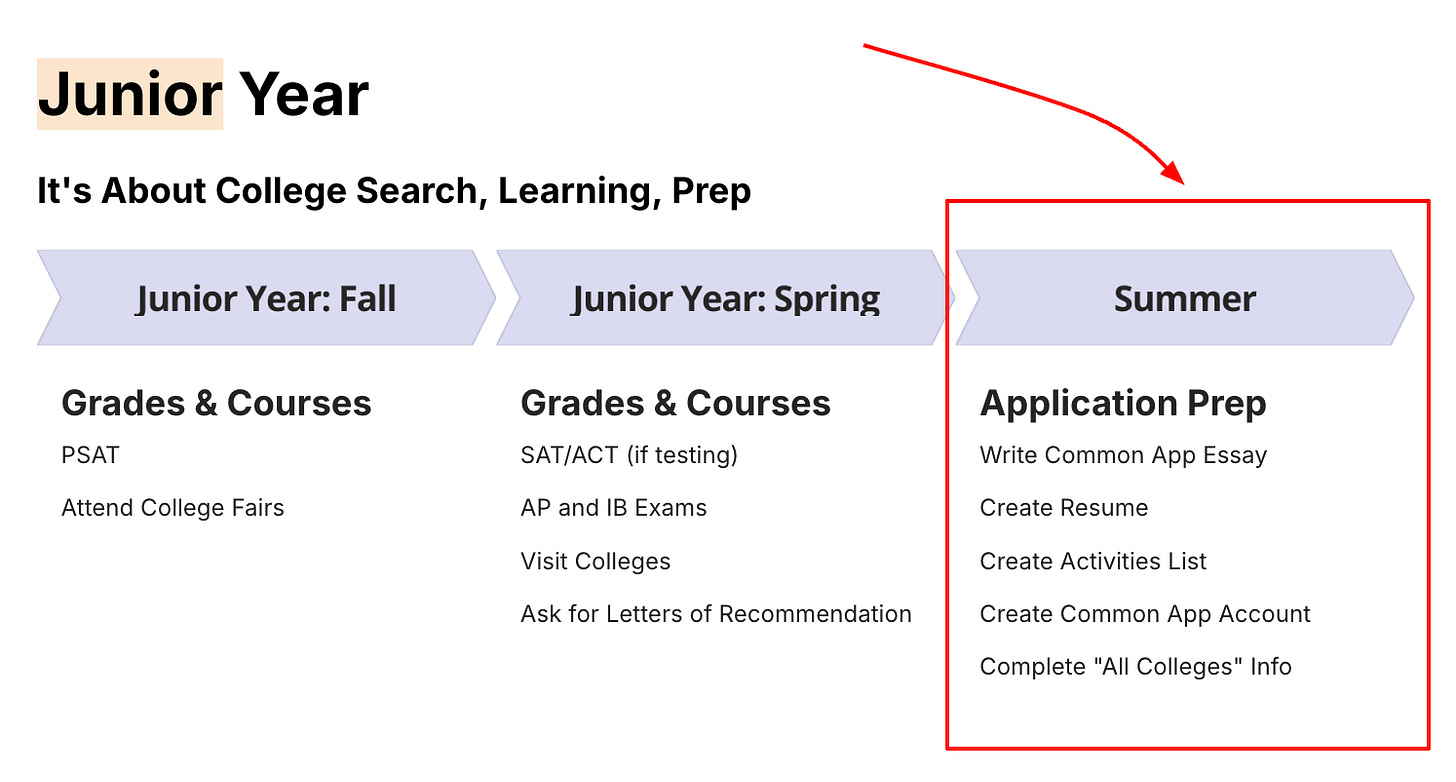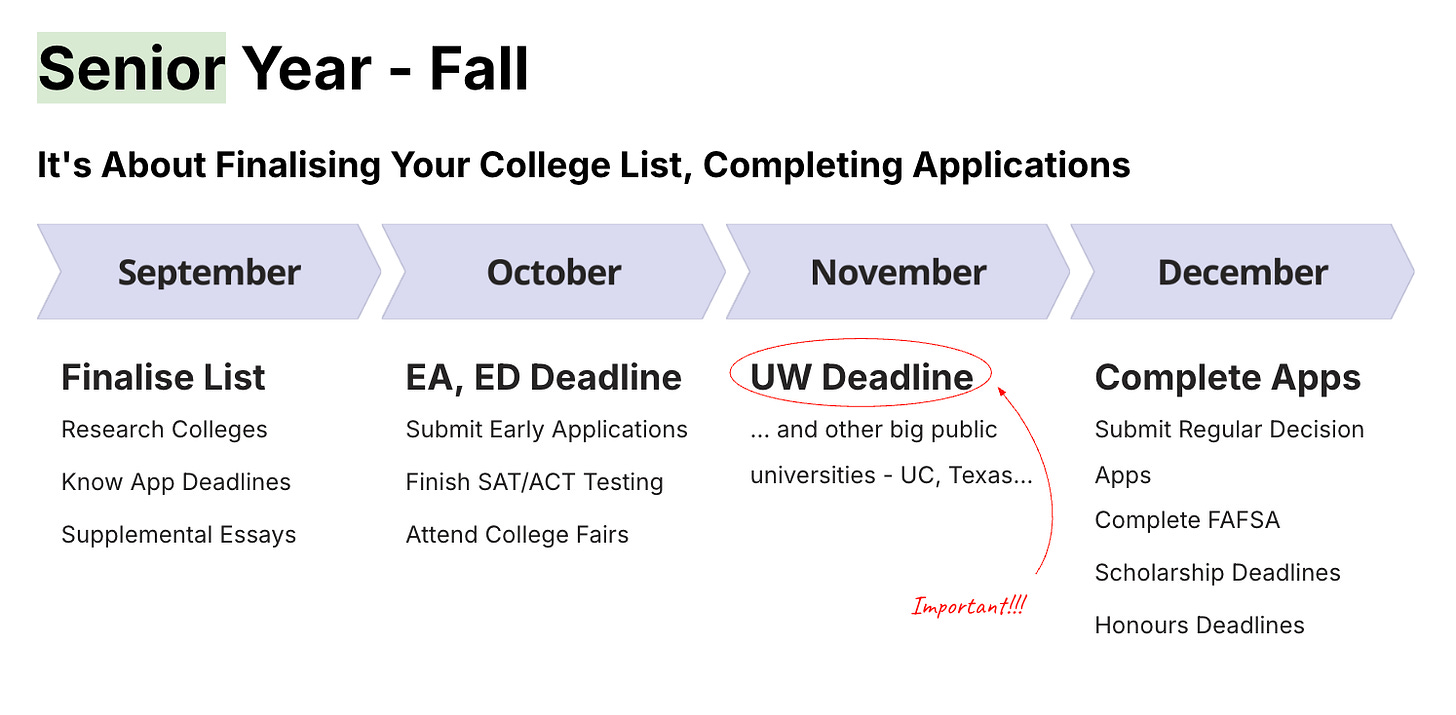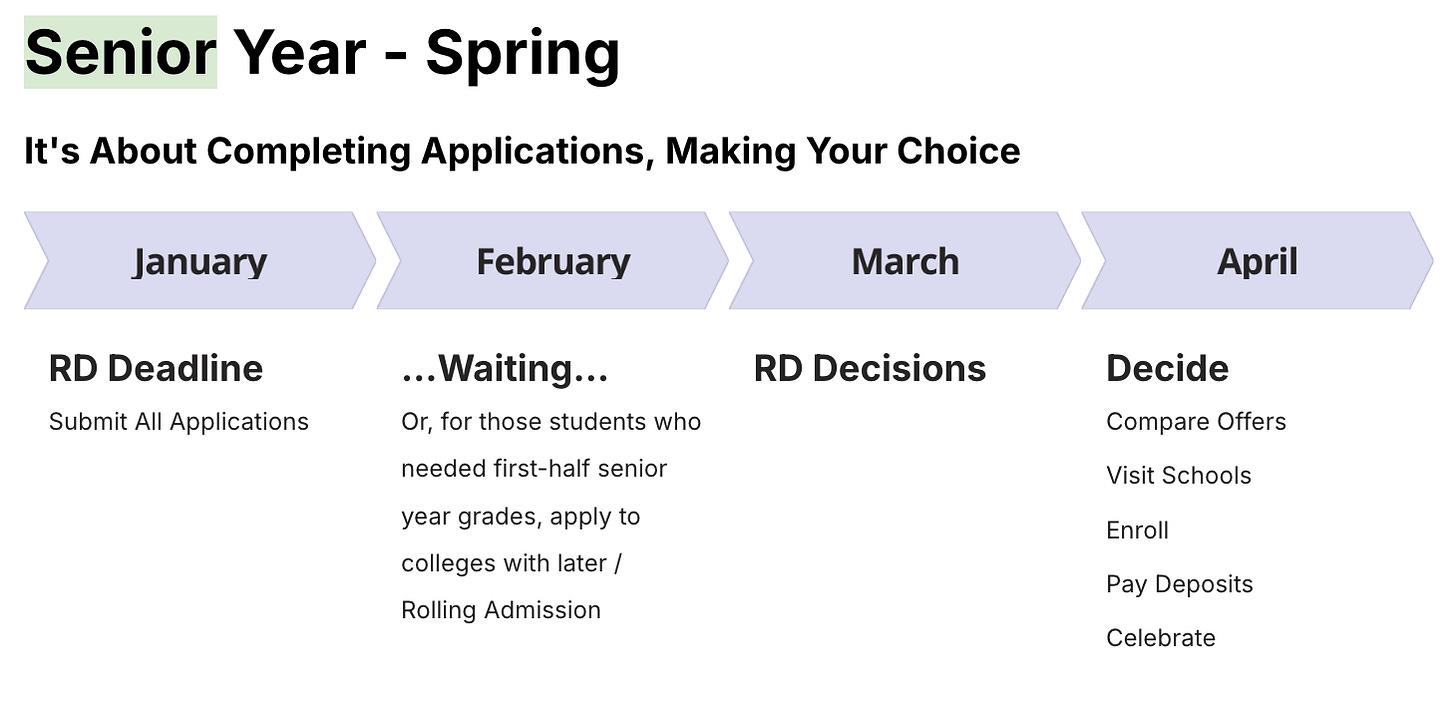BLOG: What to Focus on Senior Year of High School
Rising high school seniors… if you’re applying to college next school year, now is the time when the work becomes real. This guide is here to help you stay on track with what matters most, and when.
Getting your college applications complete requires a few deliberate steps each year of high school:
Freshman and Sophomore Years: Academic and activities foundations + exploration.
Junior Year: College search, learning, and prep.
Senior Year: Applying and deciding.
We previously covered focus areas for Freshman and Sophomore Years of High School: it’s about academic and activities foundations + exploration, and focus areas for Junior Year of High School: it’s about active preparation for college.
Let’s now look at the steps you’ll need to take during your Senior Year.
Summer: Lay the Groundwork for Applications
Some of the most important steps happen before Senior Year officially starts.
Ask for Letters of Recommendation
Identify two core academic teachers (junior year is ideal) and ask them for letters before school lets out. Teachers are busy. You’ll get stronger recs—and better chances they say yes—if you ask early. If you have questions about recommendations - https://collegeapplicationguy.substack.com/p/common-app-essentials-recommenders.Start Your Common App Essay
You don’t have to finish it, but starting over the summer gives you breathing room. Try to have a full draft by the time school starts. If you need help, this post is a good place to begin https://collegeapplicationguy.substack.com/p/common-app-essentials-writing-essays.Create a Resume + Activities List
Capture what you’ve done across four years—clubs, work, leadership, sports, family responsibilities, volunteer work. Start here, then transfer the best version into the Common App’s Activities section. Again, if you need help - https://collegeapplicationguy.substack.com/p/common-app-essentials-activities.
Fall: Complete Your Applications
August through December is when most college applications are submitted.
Finalize Your College List
Aim for a balanced list—schools where admission is likely, possible, and a reach. Consider academic, social, financial, and personal fit. If you’re stuck, talk to your counselor or advisor.Visit Colleges + Attend Events
If you haven’t toured schools, now’s your chance. College reps often visit high schools in the fall. You can also attend virtual sessions and college fairs to learn more. Note that some colleges track “demonstrated interest” - and attending these fairs and visits can help you with admissions.Complete Your Applications
Most students apply via the Common App, but double-check requirements for each school (e.g. the University of California schools and Texas schools are on different systems).Pay Attention to Early Deadlines
Start early. And don’t forget: some colleges have priority or scholarship deadlines in October or November (yes, way before Regular Decision deadlines). This is especially important for competitive majors like business, engineering, nursing, and more. Early is the new normal.
Optional: Take (or Retake) the SAT/ACT
If you’re submitting scores, aim for August, September, or October test dates. Many colleges are still test-optional, but some (especially for scholarships or certain majors) require scores—check each school’s policy carefully. And again - my standard guidance holds… I don’t think most students should worry about taking standardised tests.
Spring: Make Your Decision
By now, you’ve submitted most or all of your apps. Here’s what’s next.
Submit Any Final Applications
Some schools (especially public universities) have later deadlines in January or February. Double-check your list to make sure nothing slips through the cracks.Check Portals + Emails
Many colleges use applicant portals. Log in regularly. Read your emails. This is how schools share interview invites, missing documents, and decisions.Review Decisions + Financial Aid Offers
Most Regular Decision results arrive in March. Compare financial aid awards carefully—not all aid is created equal (remember: grants / scholarships are financial awards you don’t have to pay back; loans are different in that you are on the hook to make payments after you graduate). The deadline to commit is May 1.
A Final Word on Academics + Course Selection
It’s tempting to coast Senior Year.
Don’t.
Colleges will see what courses you take, as you will be asked to enter the courses you are taking in the Common App. Colleges will also see your Senior Year grades, because your school counselor will submit them to all the schools you choose to apply to.
Admissions offers can be rescinded if Senior Year performance drops (sadly, this does occasionally happen). Keep up your effort and stay in touch with your counselor if anything changes.
Continue to choose courses Senior Year that demonstrate your readiness for college. AP, IB, honors, or college-level classes matter. Colleges like to see students challenge themselves and succeed.




